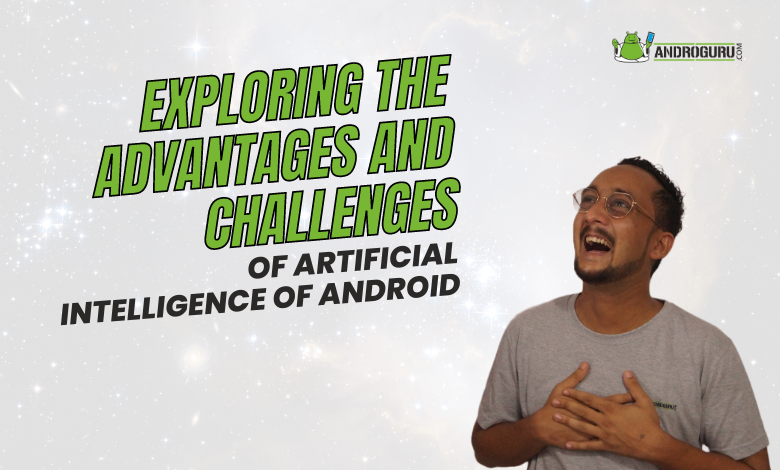Exploring the Advantages and Challenges of Artificial Intelligence of Android
Navigating the Android frontier: Embracing the potential and ethical considerations of AI.

In today’s rapidly evolving technological landscape, Artificial Intelligence (AI) has emerged as a game-changer, transforming the Android space and revolutionizing numerous professional sectors. However, amidst the promises of increased efficiency and automation, it becomes crucial to assess whether AI is truly a blessing or a curse. This article delves into the Android environment, highlighting the advantages and disadvantages of AI while shedding light on the need for responsible oversight and governance.
The advantages of AI in the Android space are vast and captivating. With reduced human error and the ability to make decisions based on comprehensive data analysis, AI algorithms hold the potential for greater precision and accuracy in various corporate processes.
First and foremost, AI brings a touch of magic to the Android ecosystem. With its ability to learn, adapt, and improve over time, AI elevates the overall user experience, making Android devices smarter and more intuitive. From voice assistants that respond to our every command to personalized recommendations that cater to our unique preferences, AI’s presence on the Android platform has revolutionized the way we interact with our devices.
One aspect that truly makes AI shine on Android is its knack for efficiency. AI algorithms work tirelessly behind the scenes, optimizing processes, and streamlining tasks to save us valuable time and effort. From intelligent calendar scheduling to automatic organization of files and emails, AI on Android empowers us to be more productive and focused on the things that truly matter.
Moreover, AI enables the creation of robots that can undertake risky tasks such as bomb defusal or space exploration, surpassing the limitations of human capabilities. Additionally, AI-powered machines can operate tirelessly, offering a 24×7 work cycle that human counterparts cannot sustain. Through AI, repetitive job tasks can be effectively automated, freeing up human resources for more critical and creative endeavors.
Digital assistants, such as Apple’s Siri, Windows’ Cortana, and Google‘s OK Google, have become an integral part of our daily routines, assisting us with various tasks like finding locations, taking photos, making calls, and more. However, alongside its advantages, AI also presents certain disadvantages.
One concern revolves around the potential laziness induced by heavy reliance on AI, which could have adverse effects on future generations. The fear of unemployment looms as organizations seek to replace qualified individuals with more efficient AI robots. Moreover, AI lacks the ability to think beyond its programmed parameters, limiting its adaptability to unexpected situations and hindering out-of-the-box thinking.
The recent resignation of Geoffrey Hinton, a prominent figure in AI research, due to ethical concerns surrounding the technology he helped create, sheds light on the growing divide between leading AI researchers and the tech companies employing them. This divide stems from concerns over the social, environmental, and political impacts of AI, as well as issues of transparency, accountability, and diversity within the field.
While acknowledging the enormous potential advantages of AI, it is crucial for humanity to tread carefully and ensure responsible development. While some fear the potential destructive power of AI falling into the wrong hands, it is important to note that currently, no AI applications exist on a scale that could annihilate or enslave humanity. World leaders, scientists, and technologists have voiced both the appreciation for AI’s value and the need for caution to prevent its misuse.
As we navigate the Android frontier, embracing AI’s potential while addressing its ethical considerations is paramount. A connected and coordinated multi-stakeholder effort is necessary to establish norms, protocols, and governance mechanisms for AI oversight. By harnessing the positive aspects of AI while mitigating its risks, we can build a better world and ensure that the rise of AI remains in human hands, guided by responsible decision-making.






One Comment